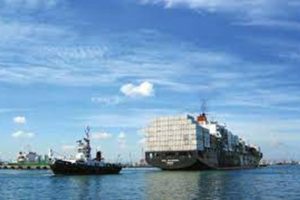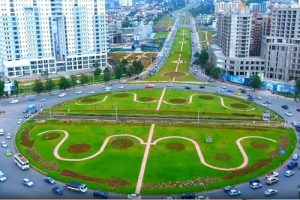
In Somali National Regional State, which has been enjoying the blessing of peace for the past six years following the national reform; the development works done in all sectors are proof that a favorable environment has been created to overcome the age-old development problems. The region is seen practicing a new work culture in the agricultural sector, especially irrigation development. Its performance in the road infrastructure sector is also promising.
One of the fastest changing sectors in the region is investment. Following the peace and stability that the region has achieved, the local natives who were living in exile have accepted the call and have returned to their country and are investing in the region’s development activities.
These natives of the region are actively participating in agriculture and education sectors as well as hotels, education sector and construction of factories. Among the investment activities carried out in various sectors of the region, the works carried out in the manufacturing industry sector are notable.
The manufacturing industry sector has greatly stimulated the region’s investment potential; the investments are contributing to moving the economy, changing the environment and creating employment for many people.
The total number of factories (small to large) in the Somali region before the reform was no more than 85. However, since then, 230 new and huge factories have been built, the Head of the Region, Mustafe Mohamed confirmed.
“Suweys Motors Company” is one of the factories operational, which runs a large economy and is an asset to the region and the country. The company is located in Jigjiga city and assembles “Jetur” and “Suzuki” Dzire cars and supplies to the local market.
This factory, in which 250 million Birr, has been invested for its construction, will also mobilize a lot of capital to import car parts to be assembled in the country. Abdi Ibrahim, Deputy Manager of Suweys Motor Company said that the factory has started assembling five cars a day and supplied to the local market. Within a month of starting the business, it sold 40 Jettur and 12 Suzuki Dzire cars in just two weeks.
Noting that there is a high demand for purchases, the deputy manager announced there are many people who have queued up to buy in advance. He also stated that the company is working with the vision of not only meeting domestic demand but also exporting cars to neighboring countries.
Abdi said that the factory has created permanent job opportunities for 300 people in the short period of its operation. When it expands and extends its business chain in the future, it will create job opportunities for many other citizens.
“Sahid Metal Industry Engineering” is another giant heavy vehicle component manufacturing and assembly company located in Jigjiga city. The head of the company’s marketing department Nesir Yasin said that the Company uses its own molding machines to manufacture truck bodies and fuel tankers. He also explained that they import heavy trucks with only engine and cabin, and then make and assemble the rest of the body in the factory and make the vehicles complete and market them.
As to him, the Company has created job opportunities for 270 people. Employees who started working in the company from scratch have today become highly paid.
Shinile is the capital city of the region’s City Zone, which has the largest industries in the region, next to Jigjiga. As Shinile is located on the Ethio-Djibouti highway, it is an economic corridor that makes its own contribution in terms of facilitating foreign and domestic trade. As a result, factories have been built to distribute their products to different parts of the country and abroad.
According to Ibrahim Robli, the chief administrator of Shenile District; in the district, especially in Shenile city, Tone and Mermarsa kebeles have been identified as industrial villages. The increasing number of industries contributed to the peace of the area.
He also mentioned that the factories are creating job opportunities for many people from the time of their construction until the time they are put into operation. He added that many job seekers of the area and from other parts of the country are employed in the factories. There are factories that produce various products in the zone, and the granite and marble factory has brought good opportunity to all those who are building houses in the area, especially in Dire Dawa and the surrounding.
He also explained that there are factories that manufacture water tanks that can hold 10,000 to 25,000 liters, sponge mattresses, cans, soap and potable water.
He pointed out that the district is where income and expenditure business is transacted, which is convenient for investors engaged in investment fields. Keeping all this in mind, he called for investors to come and engage in various activities.
Besides, 125 hectares of land has been prepared for investors who want to invest in real estate and manufacturing industries. Water and electricity infrastructure is ready to provide efficient accommodation and is waiting for the developers, he noted.
As to him, the new asphalt road that is being built from Shenile-Dire Dawa will create a favorable environment for investors in the city, and it will also create more potential for business activities in the area.
The investment office of the district is managed by the deputy director of the region. He mentioned that the peace and tranquility of the area is safe, and invited investors to come to the area and engage in the development.
One of the huge factories built in Shenile city is “Ephopic Foam and Plastic Factory”. Muaz Birhanu, the company’s production manager said that the company produces fiber glass water tanks, plastic tubes, chairs and sponge mattresses.
The factory has been operating for five years. It has been established with a capital expenditure of up to 600 million Birr. It can produce 25 to 30 fiber glass water tanks per day of different sizes that can hold 500 to 10,000 liters.
So far, it has been working in one shift and has created job opportunities for 150 people. When it starts working 24 hours, it will triple the number of employees and create job opportunities for 450 citizens. In addition to the domestic market, the plastic products are also available to countries such as Djibouti and Somaliland.
The sponge factory located in the same premises produces up to five thousand mattresses of different sizes per day (in eight hours). Stating that the product will be completely supplied to the local market, especially to Eastern Ethiopia, Muaz also mentioned that the limited market is a challenge for the factory to not produce at its full capacity.
Mentioning that they will import products for the factory from foreign countries, the manager said the proximity of Shenile to the port of Djibouti is convenient for providing resources and exporting the products.
The manager also mentioned that lack of foreign currency is causing problems in their work. Due to lack of foreign currency, he could not provide complete resources, and said that due to these problems, the factory is sometimes forced to stop.
The other owner of “Wabi Group Marble and Granite Factory” who is engaged in investment work in Shenile district is Tahir Abdi. He said that the government’s call and assistance to investors to enter their country and participate in development work and the peace achieved in the region has created a favorable environment for them to enter their country and participate in development work.
He and his friends have stated that they have established “Wabi Group Marble and Granite Factory” with a capital of 1.5 billion Birr.
As he said, the construction of the factory has been completed and it is being prepared to start production to meet the local demand by producing different shaped products for paving of buildings from stone and marble and to replace similar products that are imported. He also has a vision to provide the product to the foreign market. It is also bringing in the local resources that are used for the factory.
In terms of job creation, he said that more than 100 workers have been employed during the installation process of the factory, and when it starts working at full capacity, it will be done in three shifts.
Tahir further explained that the factory will start working soon. But, if the current power outage continues, it will affect the production. Thus, they have requested that the concerned parties pay attention to the issue of power outage.
BY BACHA ZEWDIE
THE ETHIOPIAN HERALD SUNDAY EDITION 21 JULY 2024





